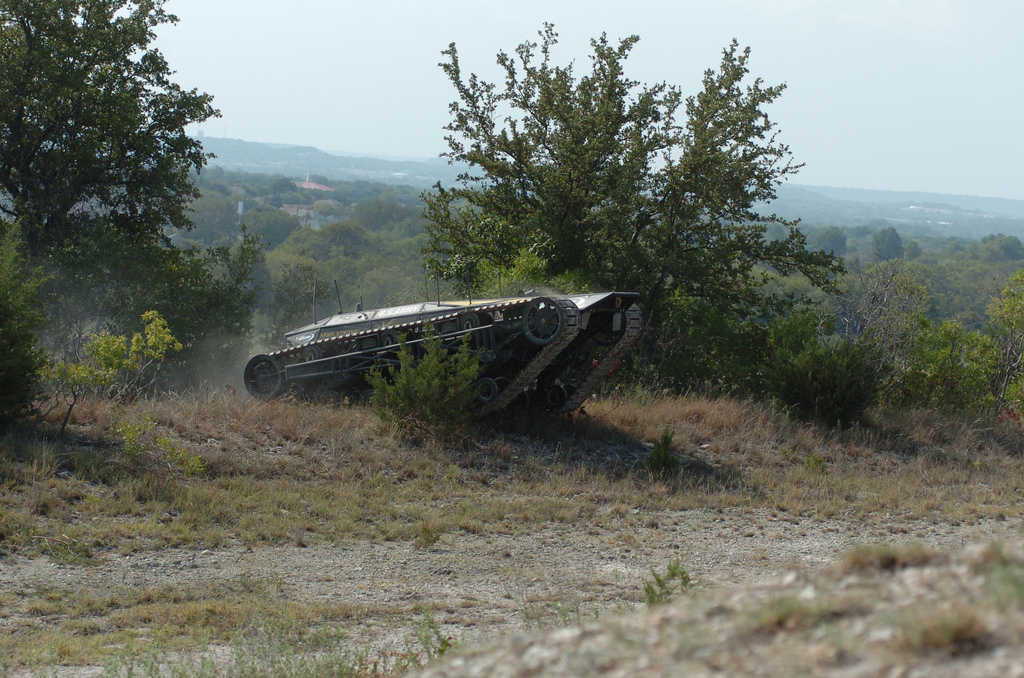
The U.S. Defense Advanced Research Projects Agency (DARPA) has granted $6 million to Professor Franz Franchetti to develop software that protects unmanned ground vehicles and high-end cars from digital threats. Franchetti is an associate research professor the department of electrical and computer engineering at Carnegie Mellon University.
[aditude-amp id="flyingcarpet" targeting='{"env":"staging","page_type":"article","post_id":630856,"post_type":"story","post_chan":"none","tags":null,"ai":false,"category":"none","all_categories":"entrepreneur,security,","session":"A"}']“This is an extremely challenging project as we work to develop secure robotic systems that are resilient to cyberattacks,” he said in a statement.
Over the past five years, the U.S. military has focused on unmanned vehicles such as airborne drones because they cost less, are smaller, and allow military personnel to operate them from afar. This removes them from harm’s way and makes high-risk missions more realistic options. However, the technology that helps the vehicles work is also hackable, which provides a significant threat to military security and safety.
AI Weekly
The must-read newsletter for AI and Big Data industry written by Khari Johnson, Kyle Wiggers, and Seth Colaner.
Included with VentureBeat Insider and VentureBeat VIP memberships.
A recent study by the U.S. Commerce Department found that cyberthreats cost billions of dollars in lost yearly revenues and threaten not only our economy but our security as well. A Carnegie Mellon release said, “Experts fear a click of a simple computer mouse could ultimately explode a fuel refinery, blind air traffic controllers, or jam an important power grid.”
DARPA supports the development of a number of tech projects, such as a “robo-horse of doom” and funneling $3.5 million into maker-haven TechShop to create “insta-factories for weapons systems.” With this contract, Franchetti’s team will develop verification tools such as virtual high-assurance sensors and automatic software systems “to help computers figure out that they are under attack and to help them survive and continue operating.”
Carnegie Mellon University is a private institution based in Pittsburgh, Penn. that’s well known for its engineering programs. Read the press release.
Photo credit: The U.S. Army/Flickr
VentureBeat's mission is to be a digital town square for technical decision-makers to gain knowledge about transformative enterprise technology and transact. Learn More
